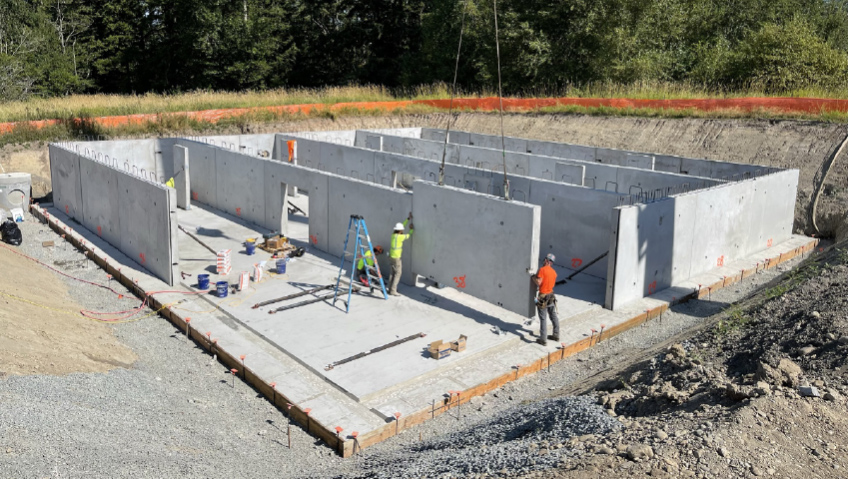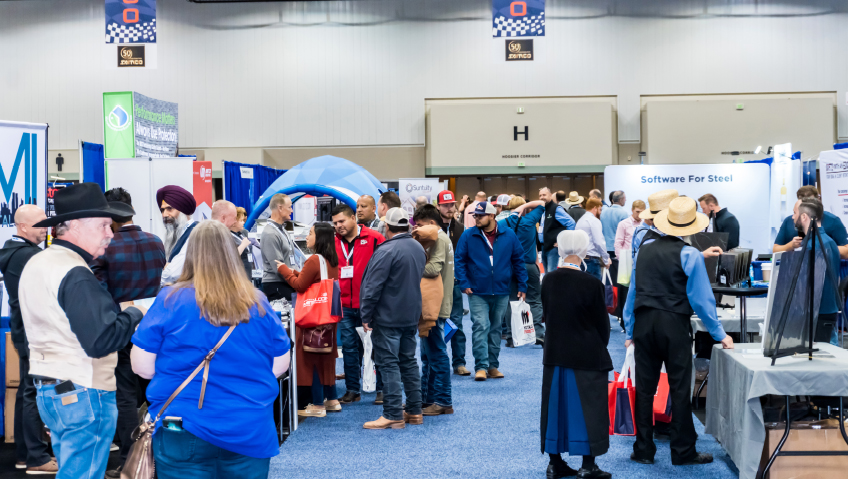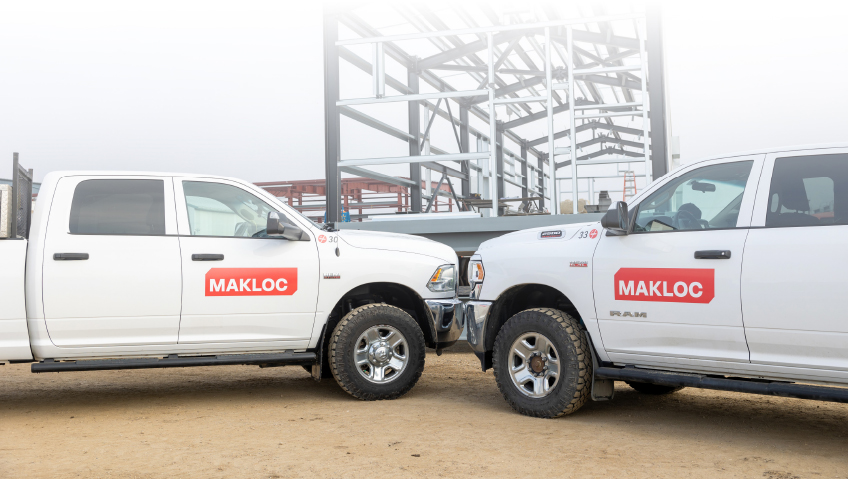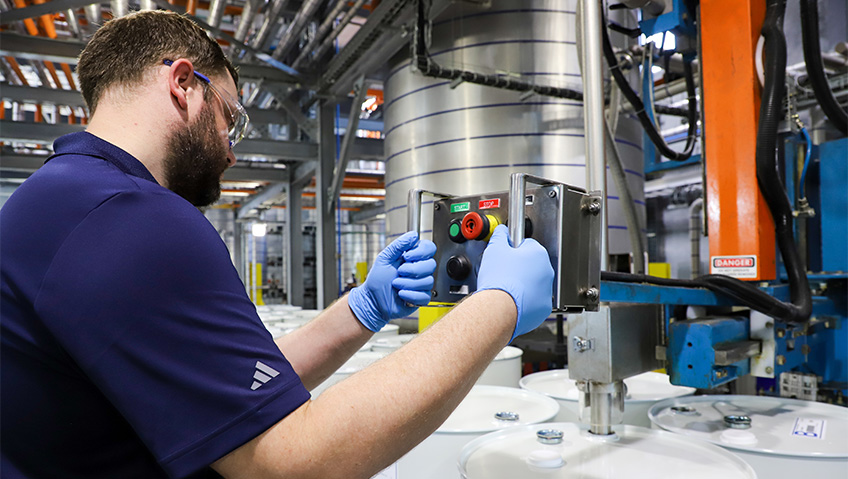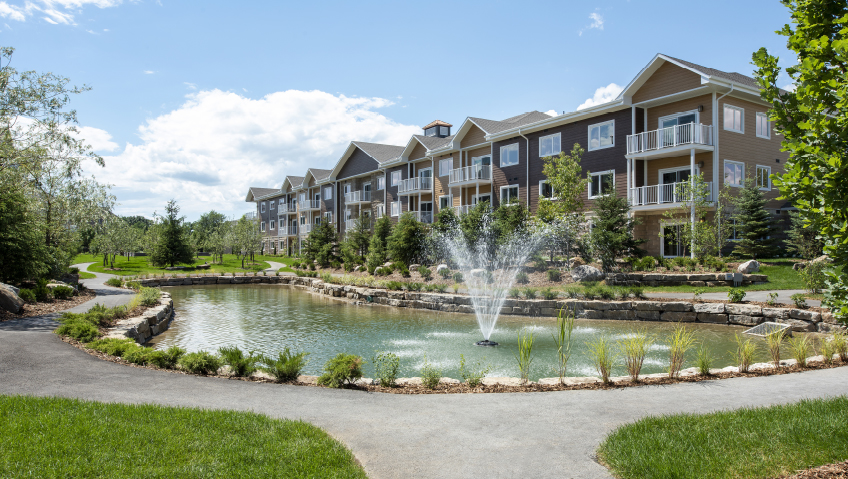Environmental Containment Corp (ECC) aims to be the Pacific Northwest’s market leader in watertight, underground stormwater detention solutions. Based in Seattle, Washington, ECC is an umbrella company for three businesses: Superior Concrete, National Precast, and Marks. Each firm plays a role in the design, construction, and installation of stormwater infrastructure.
“There’s no other company I’m aware of in our market trying to do what we’re doing. There are folks who do components of it, but there are no companies that are really pulling it all together and offering a turnkey service,” says Ron Sparks, CEO of ECC.
Superior Concrete is a contracting company with over two decades of experience doing site work, foundations, and concrete forming, and cast-in-place stormwater detention vaults, which are the company’s forte. Cast-in-place refers to a construction method in which concrete is poured into formwork at worksites to create walls and building slabs.
National Precast, meanwhile, manufactures storage tanks, stormwater detention vaults, and other underground stormwater products. As its name implies, pre-casting—a different method than cast-in-place—is central to what National Precast does. In a precast process, concrete products are fabricated at a manufacturing facility using molds, then are cured, transported to the worksite, and installed. In addition to precast, National Precast also manufactures prestressed hollowcore slabs used for stormwater detention vaults, and is a licensed contractor.
In business since the 1940s, Marks designs, fabricates, and manufactures a variety of products, including steel molds used to manufacture precast concrete products.
Superior and National Precast primarily serve the Portland and Seattle areas while Marks serves the entire United States. In 2020, ECC was launched and these three companies—which work for various private and public sector clients—were placed under its control. Sparks was made CEO of ECC, then a CFO and a controller were selected to round out the management team. “ECC does not generate revenue per se; it’s our parent company,” explains Sparks.
Among other products, ECC offers a unique “hybrid vault” solution. Smaller than a typical underground stormwater detention vault, ECC’s hybrid model can be built and installed in a fast, efficient manner.
To develop this solution, ECC utilized the respective talents of Superior Concrete and National Precast. The former firm offers “speed, logistics, and expertise” and provides a skilled labor force, while National Precast’s strength lies in manufacturing precast and prestressed concrete products including prestressed hollowcore slabs, explains Sparks.
“We took the best of both worlds,” he says. “We cast the floor in place, which is not a normal practice for a precast vault—it is a normal practice for a cast-in-place vault. And then we offer a precast wall, which is normal for a precast vault, but is not normal for a cast-in-place vault. Then we cap it off with these prestressed hollowcore slabs that are normal for cast-in-place vaults, but not normal for a precast vault… it is a hybrid of both practices, and we feel we have changed the game.”
While it can be a challenge to keep structures made from precast concrete watertight, ECC’s hybrid vaults are supremely leak-resistant. By analyzing segmented tunnel liner technology in major underground infrastructure projects such as the Big Dig in Boston, ECC came up with a way to ensure watertightness.
“We basically developed our own gasketed system that’s similar to the segmented tunnel liner product and offer a gasketed, watertight system. That’s a big selling point [of the hybrid vault] along with speed [of installation],” says Sparks. A similar gasketed system is used in segmented tunnels, ensuring a watertight tunnel.
To simplify matters, ECC controls the design, manufacture, and installation of its hybrid vaults, and as a licensed contractor will manage the installation by coordinating every aspect of the installation (including cranes, ready-mix concrete trucks, and other gear), including providing its own labor force. “We’re doing everything from A to Z to get that vault installed. That middle-size vault [sector] is where the hybrid vault really shines,” says Sparks.
The hybrid vault offering epitomizes ECC’s efforts to blend the services and specialties of the companies under its auspices. To this end, National Precast often turns to Marks to acquire steel molds for pre-casting purposes.
“We are integrated and do work actively together, although our core businesses are [slightly] different. What I mean by that is, cast-in-place detention vaults that Superior produces are quite a bit larger than detention vaults that National Precast produces and installs… It’s essentially two markets: a big vault market that gets cast-in-place and a small to medium-size vault market where National Precast lives,” explains Sparks.
“By leveraging the strengths of each of our companies, we are essentially a ‘one-stop’ source for the design, manufacture, and installation of stormwater detention systems. That’s the overarching goal,” adds ECC Business Development Manager, Jeff Marty. Future plans include the possibility of purchasing or developing a maintenance division, which would allow ECC to provide post-installation maintenance for its stormwater solutions and serve as “the final piece to the start-to-finish set of services we provide.”
In addition to innovation, sustainability is extremely important to ECC. “There has been a big push in the cement industry to be more environmentally sustainable and to reduce the carbon footprint… a lot of effort [has been put] into developing Portland-limestone cement, which is a cement we currently use,” shares Sparks.
“Portland-limestone cement is a blended cement with a higher limestone content, which results in a product that works the same, measures the same, and performs the same [as traditional cement], but with a reduction in the carbon footprint of 10 percent on average,” states the Portland Cement Association, a trade group based in Washington, D.C.
In addition to this, precast concrete has proven to be highly sustainable in underground environments, a conclusion determined through Sustainable Materials Rating Technology (SMaRT) testing. SMaRT can be viewed as a form of LEED (Leadership in Energy and Environmental Design) testing for building products, not buildings themselves. In SMaRT certification, materials are rated on factors such as the amount of recycled content, energy-saving capability, health and safety parameters, and similar.
“Precast concrete products were determined through [the SMaRT] certification process as the most sustainable underground utility product you can install. The life cycle is north of 100 years. Our industry uses all recycled material or natural material [for concrete] and recycled steel for the reinforcing,” states Sparks. Precast concrete products are considerably more eco-friendly than alternative products such as fiberglass and corrugated metal, and offer an alternative to “trucking products from thousands of miles away to a jobsite,” he adds.
For all its upward trajectory, ECC has faced its share of challenges. Like most companies in North America, the firm had to deal with fallout from COVID and is presently struggling with a labor shortage.
The COVID pandemic had a particularly harsh impact on Superior Concrete and Marks, because of how these companies perform their work. Superior and Marks typically utilize work crews, which made it difficult to maintain a six-foot social distance between laborers at the peak of the virus.
Interestingly enough, COVID did not have as much impact on the precast industry. Washington State allowed precasters to continue producing precast products for clients within government, Department of Transportation, and city/county circles. “In a precast plant, it’s easy to maintain the six-foot distance rule. We put everyone in PPE gear that was required at the time,” recalls Sparks.
The lingering virus has caused other headaches as well, and not just in terms of supply chain delays. Doing person-to-person promotion became a serious challenge during a time of remote work and business lockdowns. Prior to COVID, “you used to be able to visit a client’s office and give presentations or discuss projects,” says Sparks.
For all that, ECC remains active on the promotional front. The company has revamped its web presences and regularly attends trade shows, and Superior Concrete operates a fleet of trucks branded with the company name. In addition, ECC hosts brown bag presentations on topics of interest and participates in industry association events.
“We directly reach out to folks on the contracting and engineering side. We’re getting out there, making engineering firms aware of what we’re doing, and we’re involved in trade shows,” says Marty.
All told, roughly 155 people work for ECC’s companies at present. With future growth in mind, the company aims to consistently attract new applicants. To attain this goal, all three ECC firms have taken time to re-examine their job descriptions and requirements. Wages are kept competitive and benefits, including a 401(k) financial plan and medical insurance, have been expanded.
Going forward, ECC is looking at introducing new products. For example, National Precast is working on a new bio retention system which could be installed by Superior Concrete. Once again, Sparks stresses the company’s goal of adding maintenance services at some point.
“We are definitely looking to dig our heels in deeper into the stormwater world and build on that one-stop shop goal,” he tells us. “Our vision is to be the leader in the Northwest in the construction of detention vaults. We want to be preferred option for watertight, underground stormwater detention.”

